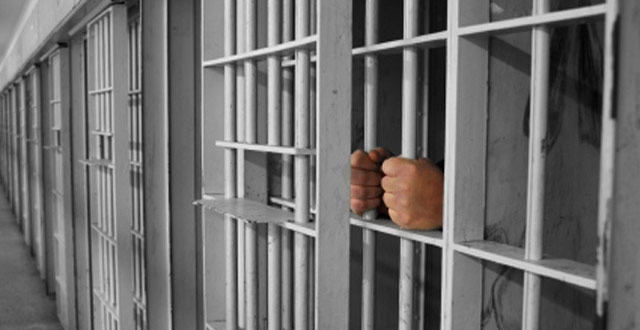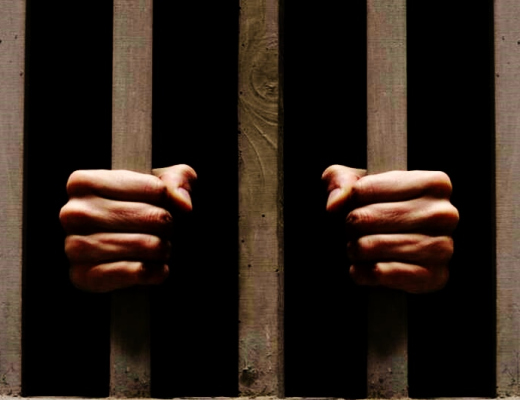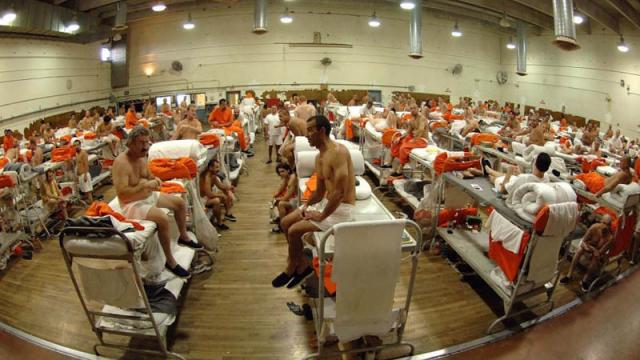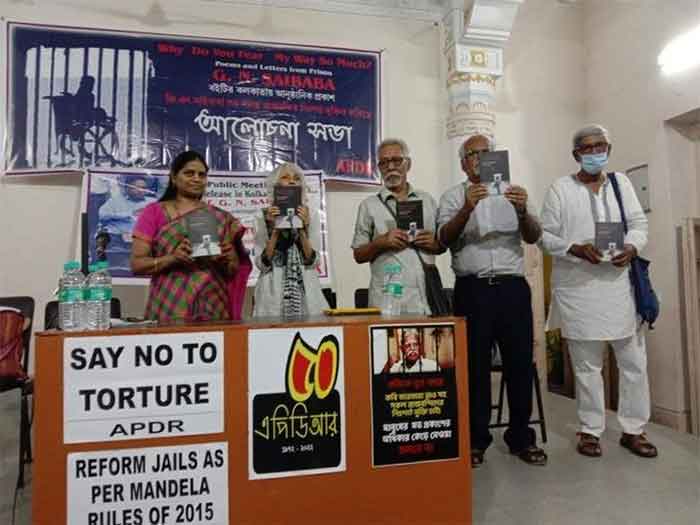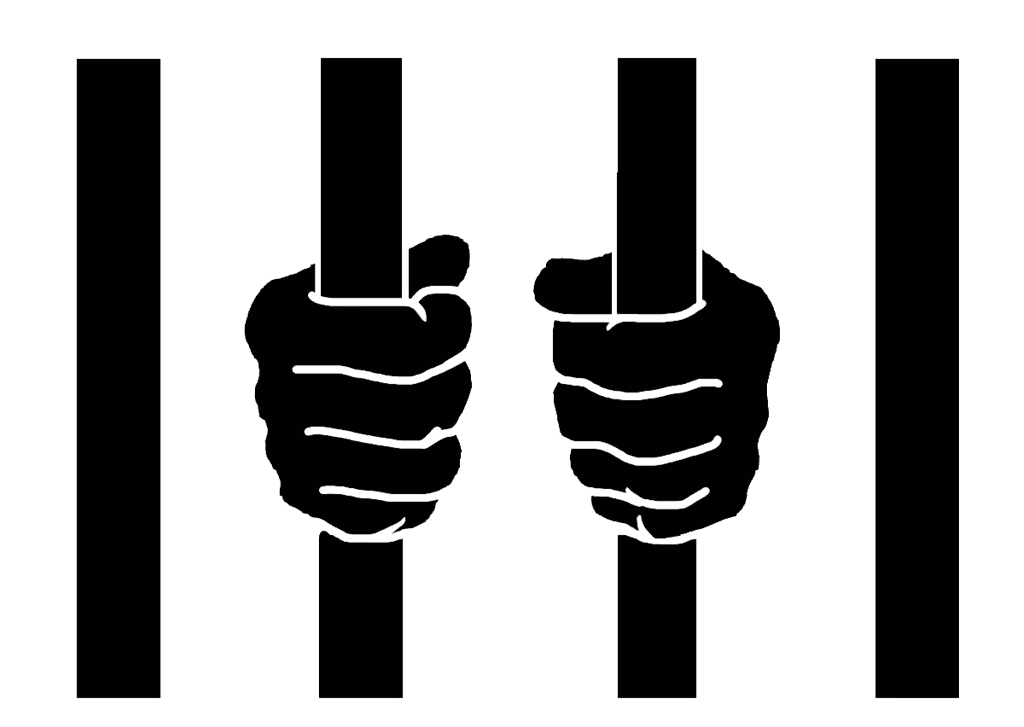
The debate about the prison system is nothing new. There are thousands of articles, studies and papers related to this particular subject. The central aim of this article is to continue the discussion on the questions like social basis of crime, failure of current system in place to deal with crime, and the long standing demand of a reformative prison system at par with modern democratic society which values the right to life with dignity for everyone. The article is not just for providing some information, as those are already available in multiple sources, rather it is a part of the narrative in favor of prison reforms with the aim to take our arguments to our readers, to engage them in a constructive discussion on the issue.
“I am convinced that imprisonment is a way of pretending to solve the problem of crime, but perpetuates the idea of retribution, thus maintaining the endless cycle of violence in our culture. It is a cruel and useless substitute for the elimination of those conditions—poverty, unemployment, homelessness, desperation, racism, greed—which are at the root of most punished crime. The crimes of the rich and powerful go mostly unpunished…”
Howard Zinn, You Can’t Be Neutral on a Moving Train: A Personal History of Our Times.
The use of imprisonment as a penal system has been there from the beginning of human history. The concept of captivity however, was not meant to the human at the dawn of society. Mostly animals were usually held captive until they were tamed and shred off their wild nature. In case of human as the society slowly advanced toward the system of slavery, the captivity of human by human started to become normal. However, once in captivity a “Human” was not a human (sociologically) anymore, rather their social position was reduced to the level of some organism useful for use for the human-interest. While, in that period captivity was not strictly a penal system in modern sense, but the later systems heavily used prisoner in captivity as the beast of burdens. As we saw in the aforementioned quotation by Howard Zinn, in our times imprisonment is an easy way for the administration to show some activity for hiding their immense failure in terms of addressing the deeply embedded social situations creating such situations. During my prison days, I remember a group of Tribal men awaiting death-penalty for committing a murder of a woman whom they declared as a witch. Though there is no doubt on the grave nature of the crime, but the background must be taken into consideration. Every day, in TV, shows are running, where sometimes women are portrayed as witches. Now, these kinds of inputs are everyday reproducing the image of a being called with in our brains. However, the counter versions, which could be useful to combat these versions are not so much popular, neither the government takes any active initiative to combat those. Hence, though such a crime can be seen as a heinous one to a section of population, but there are people who don’t even know this as a crime. Instead of campaigning and making people aware, the administrations at various levels try to finish their duties buy captivating them. But, the theory of isolating the bad apple doesn’t work well in human society. Rather “until there is an apple in the bucket, it has potential to become a bad one”- seems much true. In our case the bucket is the symbol of the cage of social conditions which brews crime.
Demography of Prisoners
For statistics of the demographics of the prison population let’s take a look at two distinctive modern democracies, i.e. the largest one and the oldest one. According to the statistics available at Bureau of Justice statistics, in United States, there were around 1,501 black male inmates per 100,000 black adult male, which is five times higher than the proportion of adult white male (268 per 100,000 adult male). In spite of the fact that Black Americans constitute around 13.4% of the population of United States, in prison their population stands at 38.3%. The percentage of Native Americans stand at 2.3%, that too 0.3% more than their population shares in US. Among the offenses, the percentage share of drug related cases stands at 46.2%. In this particular kind of offense, the number of Blacks constitutes 62.7% against 36.7% of whites. Though federal surveys show the drug users are at least five times more in white population. The rate of Blacks admitted to state’s prisons, under these charges, is about 13.4% higher than the rate of the whites.If the rate of incarceration was same in both blacks and whites, the number of Black inmates would decrease by 40%.
In India, Dalits (Oppressed castes), OBCs and Tribal people constitute about two-third of total inmates. The percentage of largest religious minority, i.e. the Muslims constitutes 19% of all prisoners. The state of Uttar Pradesh (One of the states in Hindi Heartland, where Islamophobia is more pronounced than most of the states of the country) constitutes 31.31% of all Muslim inmates in the country. The state of Uttar Pradesh also houses highest number of Dalit Prisoners. 66% of the prisoners are either illiterate or hasn’t studied beyond class Xth . In India among all prisoners 68.5% are under-trial prisoners, while only 30.9% are convicts. Among the under-trials most of the inmates belongs to marginalized social classes. According to the 268th report of the law commission it was mentioned that, “powerful, rich and influential obtain bail promptly and with ease, whereas the masses/ the common/ the poor languish in jails”. People spending their years in prison without conviction, shows the crude nature of the Justice system in the country.
The aforementioned data is very alarming as the section of population suffering more in the prison system are highly under-represented in other areas of social life, viz. education, administration, jobs etc… While the justice system is held as neutral hypothetically, but the persons representing the system have their own prejudices. For example, in India, an average person belonging to upper-caste and thinks that the Muslims, Tribal and other socially backward sections are more prone to get into criminal activities than their own caste people. 90% of the key position holders in judiciary is upper-caste males, in India. Hence, it is inevitable that this will reflect in the system of justice with the high incarceration rate of the other.
Like the two samples we have taken for discussion, similar stats can be seen in the other parts of the world too. As our system is biased toward the power center along many fault lines, viz. gender, race, class, caste, physical appearance etc., those are bound to reflect on the process in which justice is met. We often see, many gets punishment even for a crime committed out of adjunct poverty, many escapes the law even if their crimes involve millions of lives, moreover, sometimes those are not even counted as a crime. Within this kind of a system how much the prison lives upon the promise of decriminalizing the society?
Retribution is not justice
During my time inside the prison, most of the people I met were not serial offenders by any means. Most of them are convicts in crimes that happened in the heat of a moment, but judiciary never takes that in account. People, whose crimes are instantaneous, could be easily reformed, and probably they will never travel that path again in their life. But instead of that, they are being incarcerated for life, without a chance to live a reformed life again. And on the other-side, there are influential people who get out quite easily, though, their crimes affect much bigger section of the society. While Prison system has a lot of fallacies, people usually shy away from demanding its abolition. For many this is the best available system to act as maximum deterrence to the “Criminals”. Nevertheless, that understanding lacks a radical insight into “what really crime is”. Just like the other things in the society, crime is a byproduct of our society itself. If we take really closer look, we will find out a particular action which is a regular business for one, can turn into crime if we merely change the person. The logic of imprisonment as a maximum deterrent only holds true in our current society because the ruling establishment is not ready to accept that the flaws are systemic, not of any particular individuals. If we look at the history of punishment, it was far more severe in the past than it is now. But, as we can see, the crimes were not eradicated by the most severe of the punishments. So, why should we believe that the prison system can do something when more harsh measures have failed before? The problem in question is wrong here. The punishment of individual is not the needed rather a radical change of the social ideas is the thing which should be focused on. While punitive measures can serve justice in Individual crimes, it can never annihilate it socially. Let’s take theft as an example. In Past hands used to be cut off if a person was convicted under charges of theft. We will see, most of the people are being thief as a means to come out of poverty, and in reality, sometimes that becomes the maximum one can do to lead their life. So, unless the triggering factors (in this case poverty and lack of other source of income) are withdrawn, the question of the crime remains unsolved. Though it is quite simple to understand, the establishment is unable to accept it. The question becomes very radical, as the current social order is surviving on the continuous poverty of one section of the people. So, it is evident that without a significant change in the social order the problem cannot be axed at its root even in case of a petty crime like theft. So, prison system is an easy way out for the establishment from this question as they don’t want to change the status quo by themselves.
The example we discussed above, can be found to be true even for the other crimes if we look at its social history. And that means, prison system is severely under qualified to deal with the problem in question. As we say, sometimes they can serve justice at individual level, that too only in the circumstances when the accused lacks a power-position to bypass the justice system. If the accused is someone of power, even this justice-at-individual level never come up. The current combo of judiciary and punitive measures though never fails to come up with big promises it actually can’t fulfill anything than vengeance in occasional cases.
Let us leave vengeance and demand a reformative system of Justice
Readers may argue that, if this is not the way then what is? Surely it is difficult to provide an online answer if not impossible. As we mentioned earlier, the key lies at the radical change of the current social order. But that is not a magic stick. And definitely it is a long process which can take years to realize. Can we find some “reforms” for now, which can make the things a little better until the social order is changed radically? There can be some alternatives, which acknowledges firstly, that the justice system must be of reformative in nature instead of being punitive; secondly, a convict must not be dehumanized by judiciary by any means; thirdly, a person must not be deprived of her/his participation in social production. Mostly, we find that, people coming out of prison faces an unofficial sentence outside the prison, where he/she don’t get acceptance as a member of the society, often deprived of employment and livelihood. This can be a trigger factor for the reoffenders.
A system of reformation must be based on the democratic ideals the society achieved as a mark of advancement. Firstly, the authority must take an account of the social back ground of the offender. By social background we mean, every aspects of the life of the offender along with the specific circumstances under which one has committed the offence. One must get a proper reflection with the help of proper sociological and psychological counseling about the offence he/she has committed. Apart from this, the government must provide proper environment for intellectual and skill development of the offender to make sure he/she finds a proper livelihood. Whatever crime one may have committed, the authorities should be free of bias to provide them utmost care and sympathetic treatment which can help one to become a better person in future.
Does this guaranty that a person will not become a repeat offender? No, definitely not. As we discussed earlier, the roots of the crimes lie in the social order. So, unless the social order is changed radically there is no way to uproot a crime from its base. But, until then is it morally correct enough to not give a chance of reformation to an offender, whose offence itself is a by-product of his/her background? Isn’t a minimum reformative system of justice much better than the current carceral system in place? The current prison system doesn’t have any component to reform a person. A person, who goes through the process of dehumanization of present system, is more likely to become a serial offender than being reformed. So even without guaranty of an unflawed success rate, the reformative system is far better than the present one. In the we must keep in mind, while nobody is a born criminal, anybody can become one in given social conditions. This, shouldn’t we stand for the reformative justice and extend the scope of the right to life to the offenders?
Arka Deep is an activist and freelance writer based in India
SIGN UP FOR COUNTERCURRENTS DAILY NEWSLETTER

